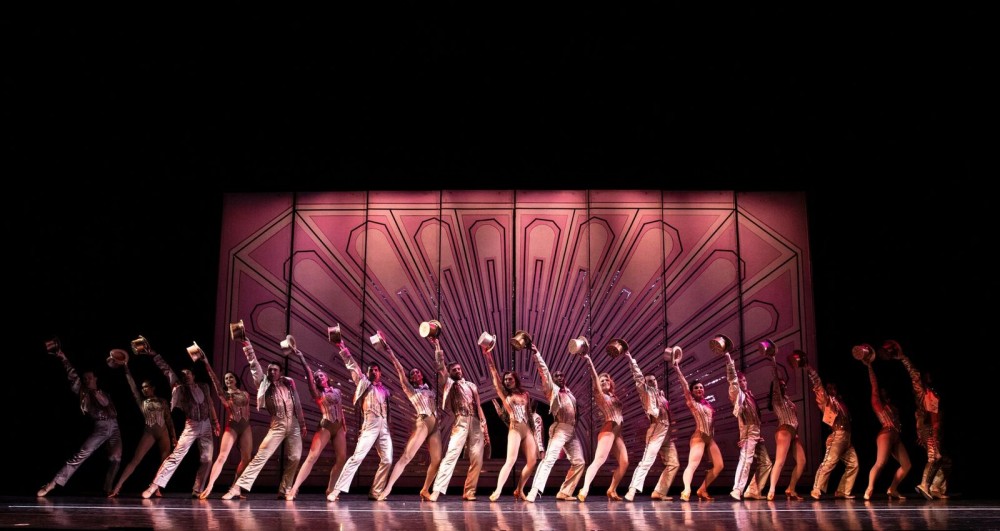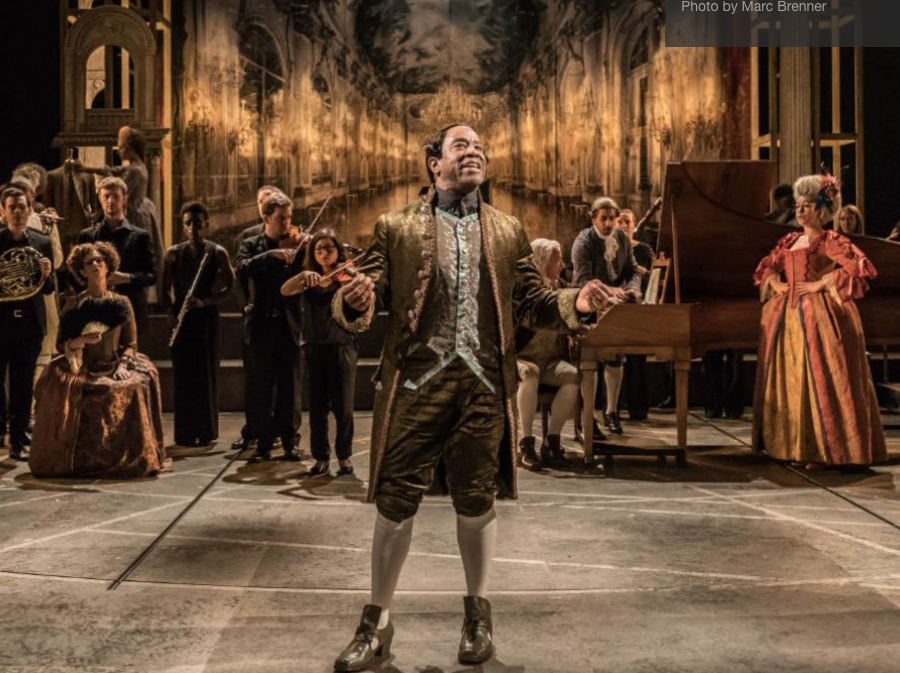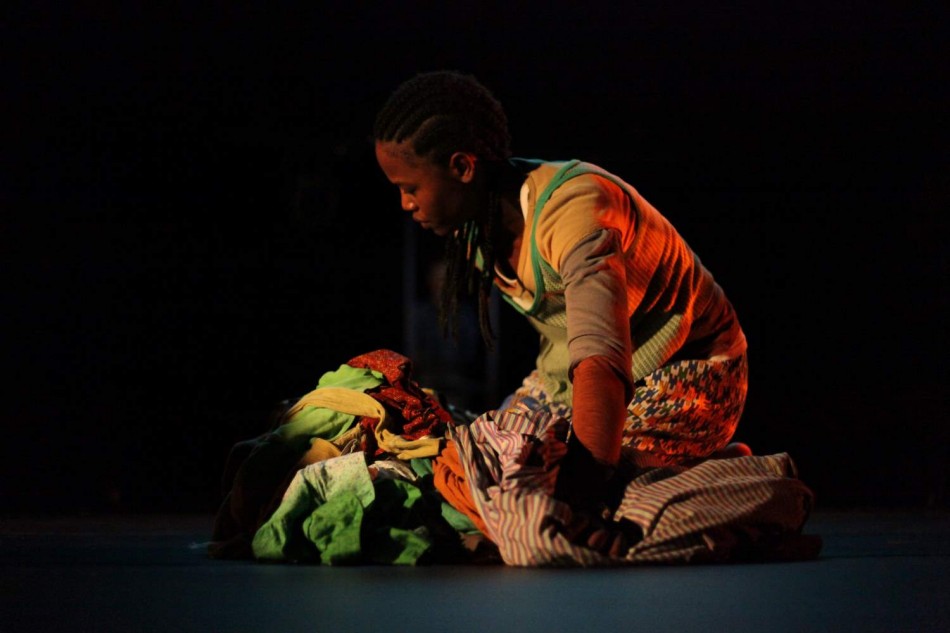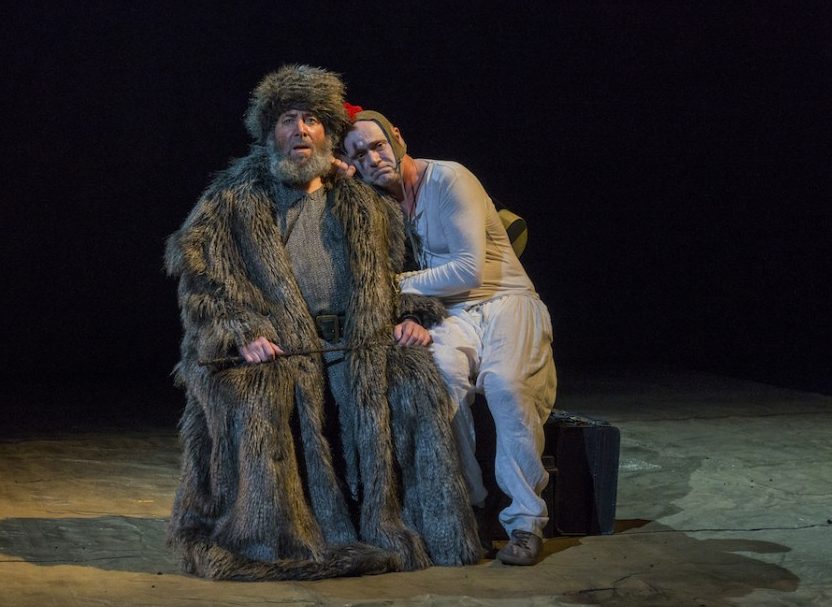

by JK Clarke
Perhaps Tennessee Williams had Jean Paul Sartre in mind when he wrote Orpheus Descending (now playing through May 14 at St. John’s Lutheran Church in Greenwich Village). Whereas Sartre posited in Huit Clos (No Exit) that “hell is other people,” in Orpheus Descending, Williams seems to be suggesting that hell is a small, southern American town in the mid-twentieth century. Derived from the classic Greek myth of Orpheus and Eurydice—the story of two lovers separated by death and the failed attempt to retrieve the departed from the underworld—Orpheus Descending places the lovers already in a Hades on earth, where they are tormented by the Furies (the deities of vengeance) in the form of gossipy, racist and spiteful town folk who occupy themselves with interfering in the lives of others. Williams’s experience of growing up “different” in such a community no doubt influenced his re-telling of the myth.
Williams’s take on the tale is somewhat distorted, modernized and flecked with Christian ideals. In his version Orpheus becomes Val (Todd d’Amour, appropriately enough), a snakeskin-wearing drifter who has a guitar signed by blues legends like Leadbelly and Muddy Waters that helps him make money (and meet women) wherever he travels. He shows up in a small town and falls in with Lady Torrance (Irene Glezos, who carries this production), the proprietor of her septuagenarian, bedridden, bigoted husband’s dry-goods store.


Astutely directed by Austin Pendleton, there are elements of this production that bring the play to life. The unusually large cast of 16 performers makes for an unexpectedly folksy show and is a terrific sketch of a town full of eccentric characters: old lady gossips, redneck farmers, the town floozy, etc. Some, like Sheriff Talbott (Tom Drummer) and quasi-narrator and town gossip Beulah Bimmings (a very convincing Brenda Currin), with their period perfect costumes (Tony French)—right down to the quaint little green pillbox hat—are so charming and unexpectedly complex that one wishes they had more stage time. Especially considering that despite Glezos’ powerful performance of the suffering wife, it’s hard to understand what she sees in this version of Val. Here is a character meant to be so utterly handsome and charming that no woman he encounters can resist his charms. He should be the embodiment of the sin of Lust, designed to ignite the wrath of the Furies. But d’Amour lacks these dimensions: he swallows his words, stares at his shoetops and doesn’t really exude any qualities that would lead a woman to risk her well being for his love.
While not featuring the quality of writing Williams is known for, Orpheus Descending—which, quite unsurprisingly, is rarely performed—is an interesting means of studying the writer rather than seeing it purely for entertainment’s sake. Pendleton does what he can to add depth and dimension to this story that comes off more as soap opera than classical drama. Keeping the stage in dim light (Susannah Baron) for the majority of the performance—creating, unintentionally ironically, a “halfway to Hades” feel—and using the long aisles of the church up which characters run or amble, shouting or commenting from off-stage, Pendleton creates a sense of a bustling, small town setting. Were the source material stronger, it would be a gripping production.
It’s important to keep in mind that St. John’s Lutheran Church is not exactly a state-of-the-art theater. It is, in fact, a church. So the lack of an elevated stage makes it difficult at times to see what’s going on; and the hard wooden pews make for a sore posterior at the end of a two and a half hour, no-intermission play (though the company very kindly offers cushions to those in need—i.e. everyone). Orpheus Descending is a play best suited for only the most ardent of Williams devotees, though Pendleton and the ensemble do a noble job of making it as palatable as possible for all.
Orpheus Descending. Through May 14 at St. John’s Lutheran Church (81 Christopher Street, between Seventh Avenue and Bleecker). Produced by Beth Bartley and Irene Glezos in association with the Provincetown Tennessee Williams Theater Festival. www.twptown.org/orpheusnyc
Photos: Ride Hamilton






















